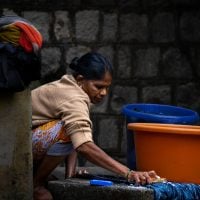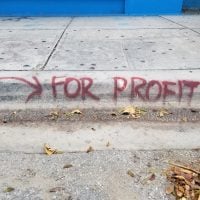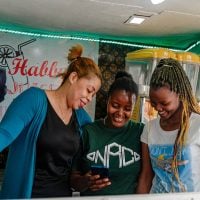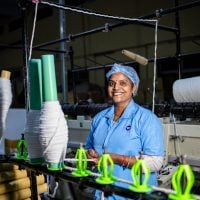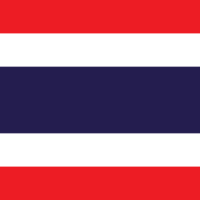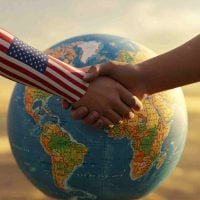Deadline: 14-Aug-2020
Through its West Africa Unique Identification for Regional Integration and Inclusion (WURI) program and funded by the Identification for Development (ID4D) initiative, Rapid Social Response program, and the Disruptive Technologies for Development (DT4D) initiative, the World Bank has launched the 2020 Mission Billion Challenge WURI West Africa Prize to surface tech-based and human-centered solutions that strengthen social insurance systems at the regional level.
The Mission Billion Challenge seeks solutions to how countries can increase their efforts to further support these groups—who often lack smartphones, computers and broadband internet access—so they can access services and cash transfers with minimal health risks.
The Mission Billion Challenge is seeking solutions to ensure the inclusivity of ID systems for vulnerable groups while taking into account the social distancing measures in response to the COVID-19 pandemic to address these specific needs:
- Global Prize
- How can countries ensure that everyone—especially vulnerable groups—are able to apply/register for an ID in a way that protects people’s health and the integrity of the ID system?
- How can countries ensure that digital authentication mechanisms in low connectivity environments are accessible and user-friendly for vulnerable populations to facilitate remote access to services and benefits?
- Wuri West Africa Prize
- How can informal sector workers in West Africa more easily participate in social protection programs?
To succeed in including the informal sector in social protection programs, it will be necessary to build digital platforms that leverage a unique, regionally interoperable ID, government-to-person (G2P) payments, social information systems, and mobile technology to enable a new approach to social insurance schemes which are not based on a standard employment contract, and which are flexible across borders. World Bank is seeking innovative solutions that facilitate contributions from and payments to informal sector workers by:
- Deploying features that promote the continuity of contributions to social insurance schemes from informal sector workers, incorporating behavioral tools that incentivize and encourage financial savings, transparency, and accountability.
- Deploying features that encourage contributions regardless of literacy and numeracy levels — including in contexts with limited internet coverage.
- Deploying features that make use of regionally interoperable foundational ID systems, which can be accessed across borders, network providers, and languages — thereby allowing workers to receive services and make contributions or withdrawals regardless of their origin or current location.
Prize Information
The Challenge is offering cash prizes totaling US$150,000 for the most promising and innovative solutions.
Eligibility Criteria
- Individuals, including academics, entrepreneurs, scientists, technologists and other engaged citizens.
- Organizations involved in research, advocacy, design and implementation of digital identification, digital payment or social protection systems.
- Notes:
- Individuals must be of at least 18 years of age at time of entry.
- Organizations must be legally established entities (profit, non-profit, academic) in their respective countries.
What type of Solutions will be accepted to the Mission Billion Challenge?
Solution applications must be written in English or French. The Mission Billion Challenge will consider solutions at all stages of development:
- Idea: A plan or concept by an individual or organization.
- Prototype: An individual or organization building and testing a product, service, or model.
- Pilot: An individual or organization deploying a tested product, service, or model in at least one location.
- Growth: An individual or organization with an established product, service or model rolled out, which is poised for further growth in multiple locations.
- Scale: An individual or organization working in several locations and that is looking to scale significantly, focusing on increased efficiency.
The most important thing is that your solution addresses the focus of the Mission Billion Challenge. Through open innovation, Mission Billion and WURI are looking for a diverse portfolio of solutions across geography, development stage, and team members’ gender and background. They encourage people of all backgrounds to submit applications.
Evaluation Criteria
The judging committee for the Mission Billion will be comprised of international experts, staff members of the World Bank and partner organizations. After an initial screening by World Bank and MIT Solve staff, the judges will score the screened solutions based on the following criteria:
- Alignment: The idea or solution addresses the challenge that has been set forth.
- Context Appropriateness: The idea or solution – whether it is a global or a regional submission – takes into account the context of developing countries, including low to no connectivity in some areas and little formal technical training among individuals, as well as low literacy and numeracy levels.
- Scalability and Ease of Use: The idea or solution can easily be scaled to affect the lives of millions of people.
- Feasibility: It is feasible to implement the idea or solution, and the team has a plan for the solution to sustain itself after implementation.
- Innovative Approach: This is a new technology, a new application of a technology, a new idea, or a new process for solving the challenge.
Selected finalists will pitch before the judges and a live audience at the Mission Billion Challenge Pitch Event to be held during the World Bank/IMF Annual Meeting in Washington, D.C. in October 2020. The judges will determine which solutions are the most promising and those selected will receive prize funding and support from the World Bank and its partners.
For more information, visit https://solve.mit.edu/challenges/wuri-mission-billion-2020

